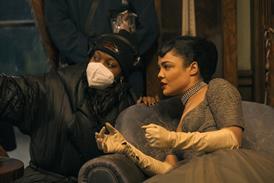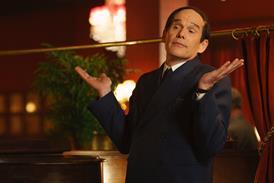With more than 150 features screening last year, many criticised the sixth Tribeca Film Festival for offering a line-up that was too eclectic and of mixed quality, as well as for sky-rocketing ticket prices.
Nonetheless, by the end of the 12-day event, a number of films had caught the attention of both industry and critics. Taxi To The Dark Side, Alex Gibney and Eva Orner's documentary about an Afghan taxi driver beaten to death in 2002 while in US military custody, had its world premiere at Tribeca before going on to win the Academy Award for best documentary feature.
Tricia Regan's Autism: The Musical, was also short-listed for an Academy Award in the documentary category and went on to win an Oscar. Lovesickness, set in Puerto Rico and executive produced by Benicio del Toro, went on to be Puerto Rico's Oscar submission and found a US deal at the festival (via Lumina) with Maya Releasing. Last year's festival also helped launch (with Sxsw) Seth Gordon's documentary, King Of Kong, a breakout hit about Donkey Kong computer-game contestants, which went on to a $700,000 theatrical gross.
"We received a good deal of attention, and it was great people were talking so much about the film," Gibney said of his Tribeca debut. "To be honest, we applied to Tribeca because (Taxi To The Dark Side) wasn't accepted to Sundance. But it was probably a blessing, because we worked on the film between the deadline for Sundance and the deadline for Tribeca, and the movie changed a lot."
The buyers rushed to the 2007 event. Of the films that premiered at Tribeca, 34 found some form of distribution, according to festival organisers. Improvisational poker comedy The Grand sold to Anchor Bay Entertainment, while Cinetic Media sold Mulberry Street (After Dark Films) as well as Suburban Girl (First Look) and Taxi To the Dark Side (ThinkFilm). It also sold hit boxing comedy The Hammer and comedy-romance In Search Of A Midnight Kiss to IFC.
"Midnight Kiss was an unmitigated success," says Cinetic Media's Sarah Lash. "It's an example of a great director-driven film made on a small budget. Tribeca is a very nurturing environment for films to be discovered. It really had the chance to percolate."
Tammie Rosen, director of communications for Tribeca Enterprises and the Tribeca Film Festival, says the number of films finding distribution at Tribeca has increased steadily over the years, from one or two titles in the first years, to 17 three years ago, 24 in 2006 and 34 in 2007.
"We've noticed an increase in the number of films being bought. The distribution method is changing," Rosen says. "People aren't just watching films like before. With (online rental services) Netflix and (sister distributor) Red Envelope, a lot of people are finding smaller indie films and watching them at home. There've been titles here that we've helped find their way."

















No comments yet